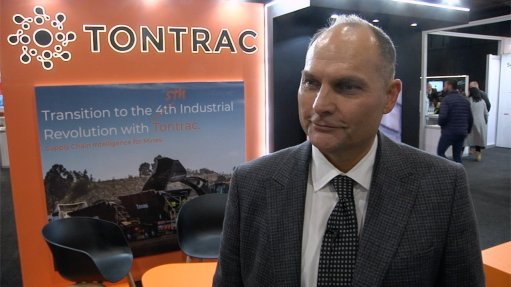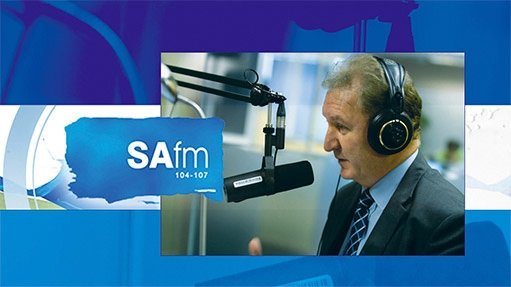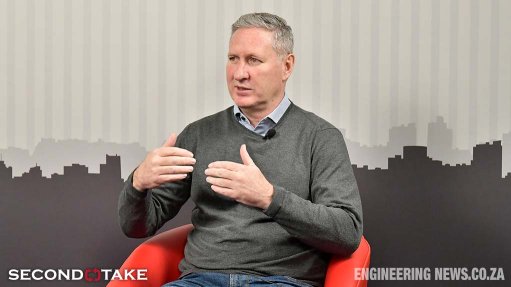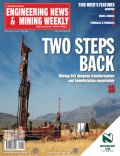JSE presents chance for critical mineral miners to access capital


JSE Business Development Manager Patrycja Kula-Verster interviewed by Engineering News & Mining Weekly.
Patrycja Kula-Verster South Africa has an abundance of resources and reserves and it is important to facilitate access to funding and unlocking this potential
Critical mineral demand is growing significantly at a time when South Africa has a pressing need to reawaken its public markets – two crucial needs that can be fulfilled in one go by companies raising capital on the Johannesburg Stock Exchange (JSE) to fund their entry into the critical minerals mining space.
Globally, critical minerals lists are growing, with many of the minerals registered available from existing mines in South Africa, which also offers opportunities for potential expansion by existing mining companies.
Let us not forget that South Africa has about 6 000 unexplored and abandoned mines, some of which have existing infrastructure on which to model data and facilitate the raising of some capital for the re-development of these operations.
These are among the many points highlighted by JSE business development manager Patrycja Kula-Verster during a Zoom interview with Engineering News & Mining Weekly.
“If one looks at critical minerals such as copper, magnesium, lithium, nickel, cobalt, rare earths, for example, and many more, it is really a good opportunity to see where the opportunities lie in terms of the broader electrification of the global economy, as many are looking at securing energy security globally and not only here in South Africa,” said Kula-Verster.
Regular additions are being made to critical mineral lists, with Australia, for example, last year appending fluorine, molybdenum, selenium and tellurium to its register of minerals that it regards as essential to modern technologies, atop of Australian officials also creating a new strategic materials list that embraces copper, nickel, aluminium, phosphorus, tin and zinc.
“South Africa’s got an abundance of resources and reserves and it is important to facilitate access to funding and unlocking this potential,” added Kula-Verster.
Whether operations are existing or emerging, the JSE is there to facilitate access to capital to give these opportunities a platform on which to develop and make a significant contribution to the South African economy.
By listing on any exchange globally, one is essentially using the franchise of that exchange, and, particularly in the case of the 137-year-old JSE, that franchise is able to profile businesses to both institutional and also retail investors.
It is important for issuers of shares to maintain their profile and continuously engage with these investors.
When it comes to research coverage, local independent research analysts cover many of these stocks for the benefit of retail investors.
The JSE has around a dozen retail brokers plus financial services providers that have made it their job to ensure a user-friendly experience when it comes to trading stocks on an exchange.
Most important is continuous communication with the retail investor audience.
The JSE also assists companies with broader exposure and as companies grow and are included in indices, for example, they can be included in many additional products.
Investing in a basket full of shares is a fantastic opportunity to get some indirect shareholding in some of these types of companies, as well as actively manage certificates.
Creating an enabling platform to access capital is the prime responsibility of exchanges, along with ensuring continuous local and international profiles.
Once listed on the JSE, continuous access is provided to follow-on equity raising and even debt capital markets, depending on the funding requirements.
“There is access to capital via the JSE for junior miners, not only the large miners, and I think that’s an important point to make. There are deep and liquid capital markets available here in South Africa, both in retail and institutional, so much so that you can even attract some offshore investments,” Kula-Verster pointed out.
Run some models, look at the optimum funding sources, and determine whether an initial public offering (IPO) makes sense or whether a private placement is deemed to be more appropriate.
The JSE private placement platform facilitates capital raising for those companies that perhaps are either not ready to do a listing just yet or are looking at some form of pre-IPO funding.
Overall, as an exchange, the JSE’s role is to facilitate access to capital for junior miners and established miners.
New mining capital raisings have become too few and far between, liquidity is drying up, and the delisting trend on the JSE needs to be reversed.
A new digital investment platform that has the potential to help reverse the poor listing trend is Utshalo, which is setting out to bridge gaps for non-institutional investors by reconnecting retail investors with companies seeking to raise capital in South Africa’s public markets.
As the creation of former Nedbank investment banker Paul Miller and investor marketing company Ince, Utshalo has a plan of action to present IPOs.
It will re-connect issuers and investors in the primary market, mainly for new issues of shares, where companies want to raise new money, such as takes place with new public market listings.
This crucial new enterprise will also help holders of illiquid blocks of shares find buyers in the secondary market, but the trade will be settled off market.
A limited number of relatively large transactions a year is Utshalo’s hope, with investor members being required to have an existing stockbroking account, with, for example, an investment platform such as EasyEquities, for secondary trade.
Transactions will be settled through Strate, a long-standing component of the financial market ecosystem, using the investors’ existing stockbroking accounts.
Stockbrokers – similar to EasyEquities – trade exclusively in the secondary market where shares trade between anonymous willing buyers and willing sellers and the issuer is not involved.
In the past, as a service to their clients, stockbrokers would participate in the primary market by soliciting participation, for example, in IPOs or accelerated bookbuilds and they were not able to charge the issuer for the service because of the obvious conflict of interest.
In contrast, Utshalo, a licensed financial service provider, will be paid by the issuer (or seller) and will offer the service at no cost to the investor.
It is not a competitor to stockbrokers and inhabits a market niche entirely its own. In offering a complementary service that aims to encourage more market participation by retail and other non-institutional investors, it needs stockbrokers, which will continue to conduct all the secondary on-market trade.
Utshalo also aims to simplify the process for stockbrokers by taking on a lot of the administration of these types of primary market transactions.
Importantly, Utshalo acts only as an intermediary and does not, at any time, hold the cash of investors, nor their securities.
An interesting paradox here, in that the financial services sector wants to earn fees (amongst the highest in the world) by managing all retail savings at scale in collective investment schemes.
However, to do so, the financial services sector needs a vibrant public market, and to have a vibrant public market, far more direct retail participation is needed than is the case.
Comments
Press Office
Announcements
What's On
Subscribe to improve your user experience...
Option 1 (equivalent of R125 a month):
Receive a weekly copy of Creamer Media's Engineering News & Mining Weekly magazine
(print copy for those in South Africa and e-magazine for those outside of South Africa)
Receive daily email newsletters
Access to full search results
Access archive of magazine back copies
Access to Projects in Progress
Access to ONE Research Report of your choice in PDF format
Option 2 (equivalent of R375 a month):
All benefits from Option 1
PLUS
Access to Creamer Media's Research Channel Africa for ALL Research Reports, in PDF format, on various industrial and mining sectors
including Electricity; Water; Energy Transition; Hydrogen; Roads, Rail and Ports; Coal; Gold; Platinum; Battery Metals; etc.
Already a subscriber?
Forgotten your password?
Receive weekly copy of Creamer Media's Engineering News & Mining Weekly magazine (print copy for those in South Africa and e-magazine for those outside of South Africa)
➕
Recieve daily email newsletters
➕
Access to full search results
➕
Access archive of magazine back copies
➕
Access to Projects in Progress
➕
Access to ONE Research Report of your choice in PDF format
RESEARCH CHANNEL AFRICA
R4500 (equivalent of R375 a month)
SUBSCRIBEAll benefits from Option 1
➕
Access to Creamer Media's Research Channel Africa for ALL Research Reports on various industrial and mining sectors, in PDF format, including on:
Electricity
➕
Water
➕
Energy Transition
➕
Hydrogen
➕
Roads, Rail and Ports
➕
Coal
➕
Gold
➕
Platinum
➕
Battery Metals
➕
etc.
Receive all benefits from Option 1 or Option 2 delivered to numerous people at your company
➕
Multiple User names and Passwords for simultaneous log-ins
➕
Intranet integration access to all in your organisation




















